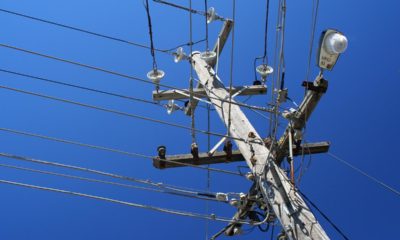- Egbin: Gas Shortage Hurting Power Generation
Nigeria’s biggest power station, Egbin Power Plc, has said poor gas supply is hurting its plan to generate at least 1,320 megawatts (MW) of power from its station.
The power station generated 515MW as of 6.00 am on April 22, 2019, far below its installed capacity of 1,320MW.
“We have fixed all our turbines and we can do from Egbin 1,320 megawatts but there is no gas. If there is no gas, we cannot power the system. The gas available to us can probably give at best 750MW today,” the Group Managing Director, Sahara Power Group and Chairman, Ikeja Electric, Mr. Kola Adesina, said on Thursday.
In February, the chairman had promised the station would deploy 1,320MW at the end of that month but that did not come to fruition.
Egbin power is one of the Group operating entities under Sahara Power Group, an affiliate of Sahara Group.
Adesina, who was at the inauguration of the 2019 Young Engineers Programme at Ikeja Electric, said: “This is the very first time all the turbines are available and are ready to work. We should find a way, as a nation, to ensure that there is gas availability.”
According to the Group Chairman, gas suppliers just don’t want to sell to those who can use their gas but also those who can pay.
He said, “If the system of payment today is not really supportive of 100 per cent payment for gas use, then the suppliers are not motivated to give gas to the power companies.
“Secondly, if the tariff for gas today is $3.30 and the gas supplier can sell that gas at $7 or $8 to someone else, he will prefer to sell to the person who is going to pay more.
“So, if truly there is a domestic supply obligation that needs to be enforced such that the law of comparative advantage in terms of gas supply to Nigeria is made the priority, then we should definitely get enough gas for all the power plants.”
Adesina also stressed the need for cost-reflective electricity tariff, saying, “Without a cost-reflective tariff, which is the fundamental question and the elephant in the room in the power sector, we may not be able to get uninterrupted power supply as we desire.”
He noted that there were many other issues within the power value chain that must be solved.
He said, “Recently, we had a serious power outage in Nigeria. The reason for that was that the gas provider had leakage on the pipeline and in solving that leakage, every generation company had to ramp down their power because gas cannot be supplied while repair work is going on.
“I think Nigeria should not have just one pipeline supplying gas to different power plants. Nigeria should have multiple gas pipelines to all the power stations we have such that if there is a shortage in one, they can divert gas to the others.”

 Forex3 weeks ago
Forex3 weeks ago
 Naira3 weeks ago
Naira3 weeks ago
 Billionaire Watch2 weeks ago
Billionaire Watch2 weeks ago


 Naira3 weeks ago
Naira3 weeks ago




 Naira2 weeks ago
Naira2 weeks ago




 Naira1 week ago
Naira1 week ago




 Naira4 weeks ago
Naira4 weeks ago
 Banking Sector4 weeks ago
Banking Sector4 weeks ago




















